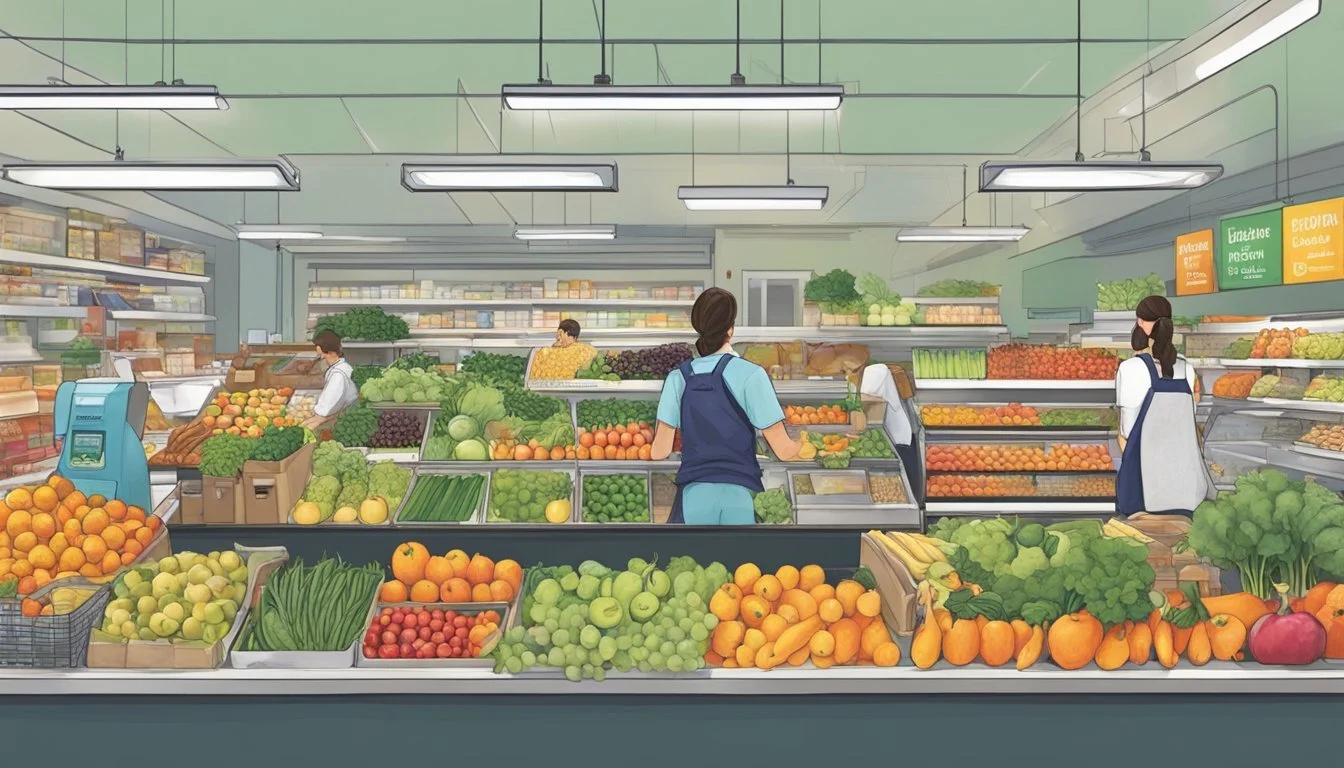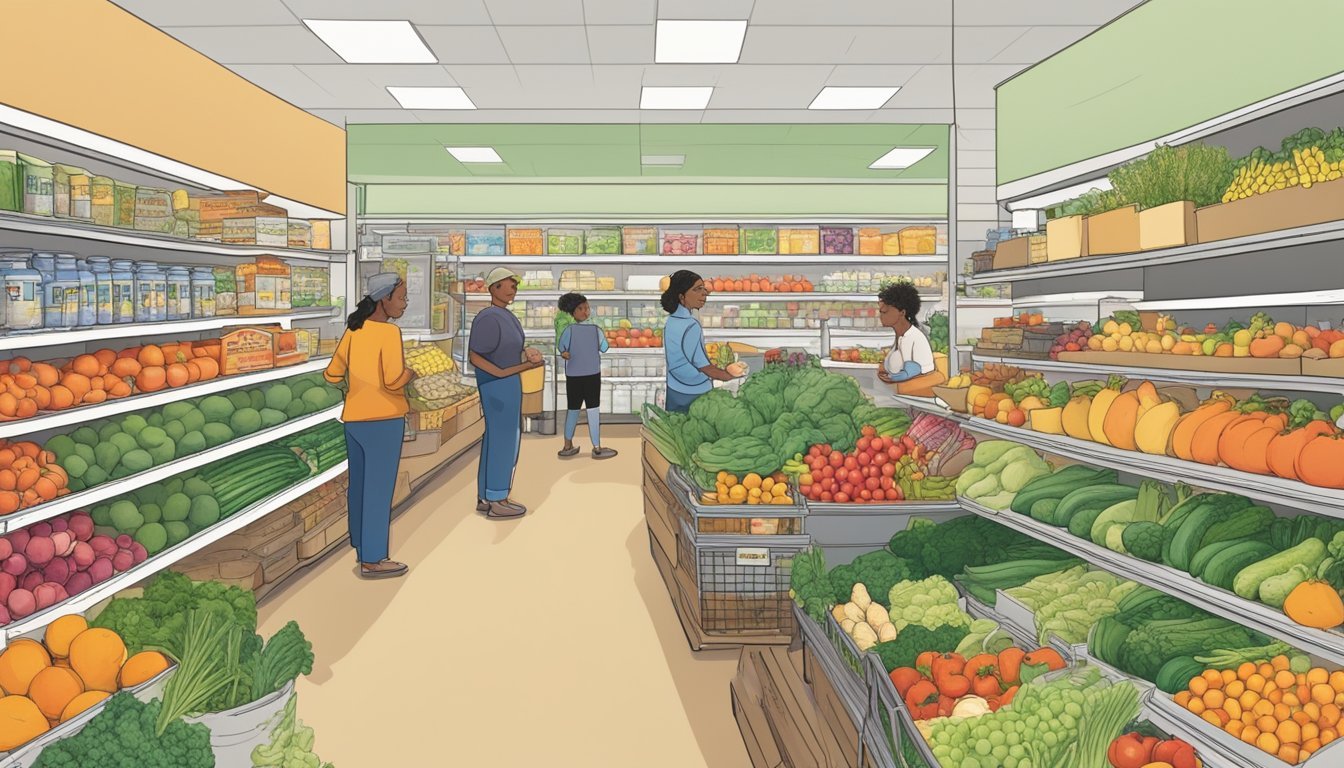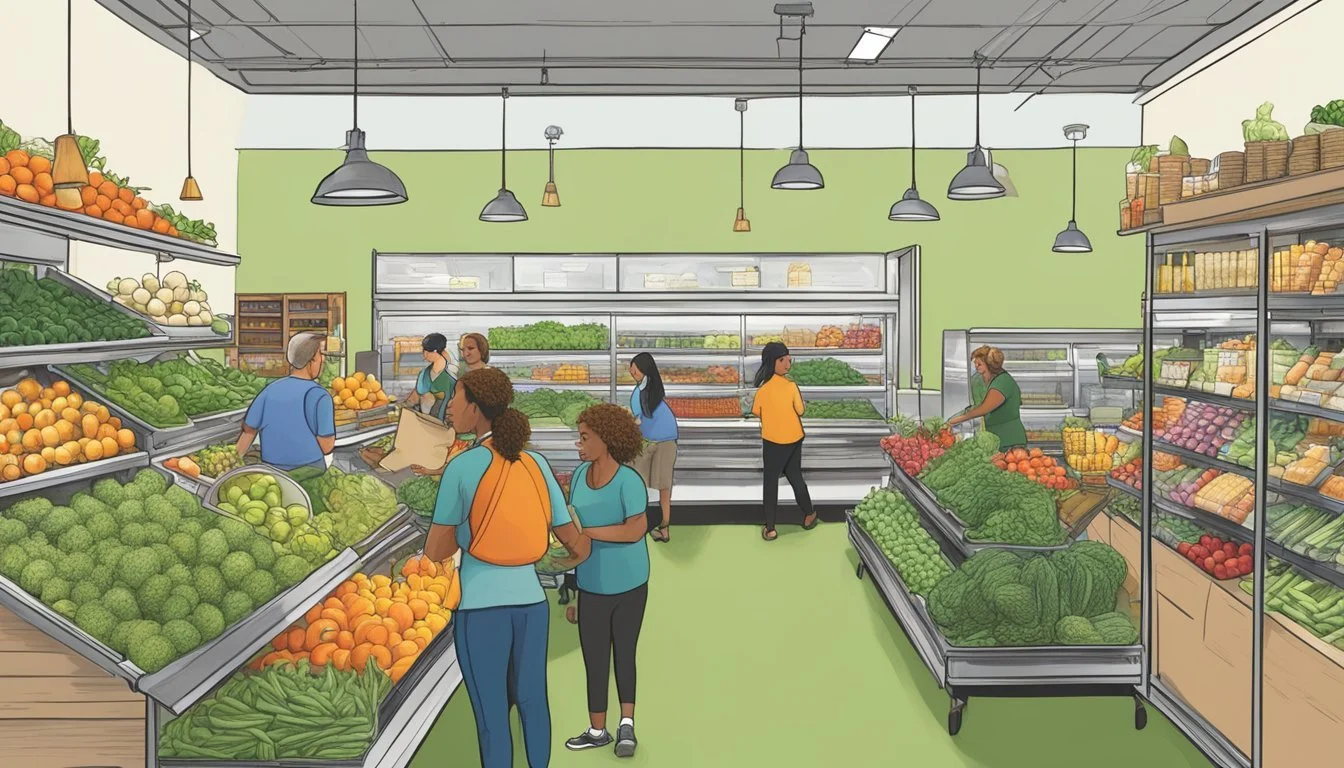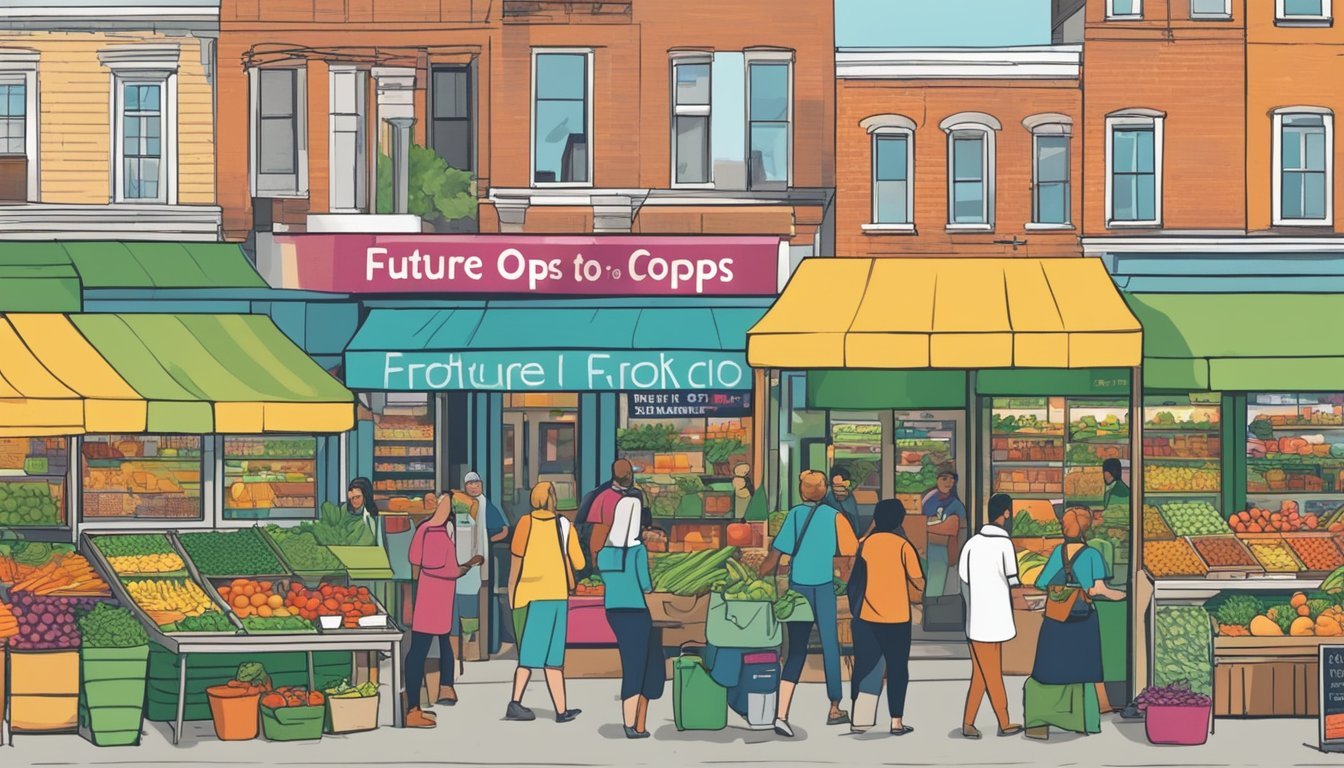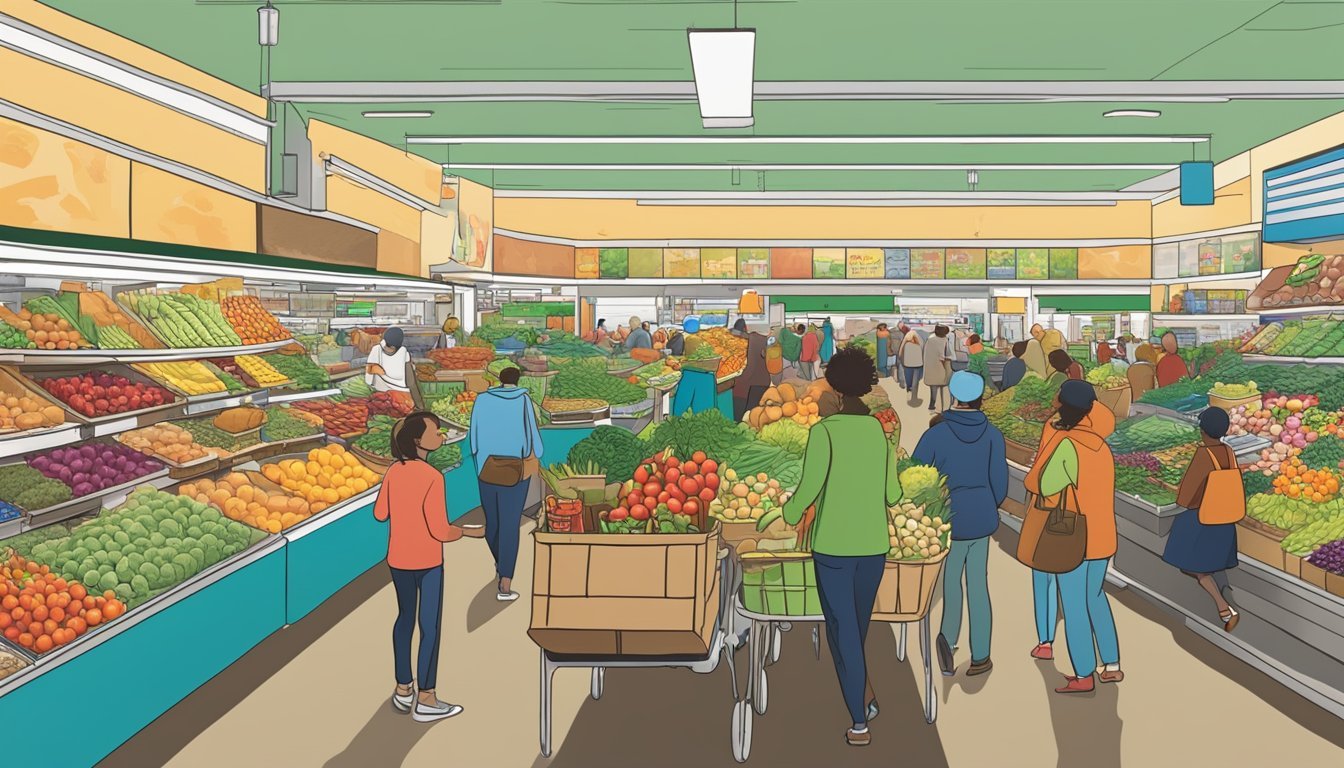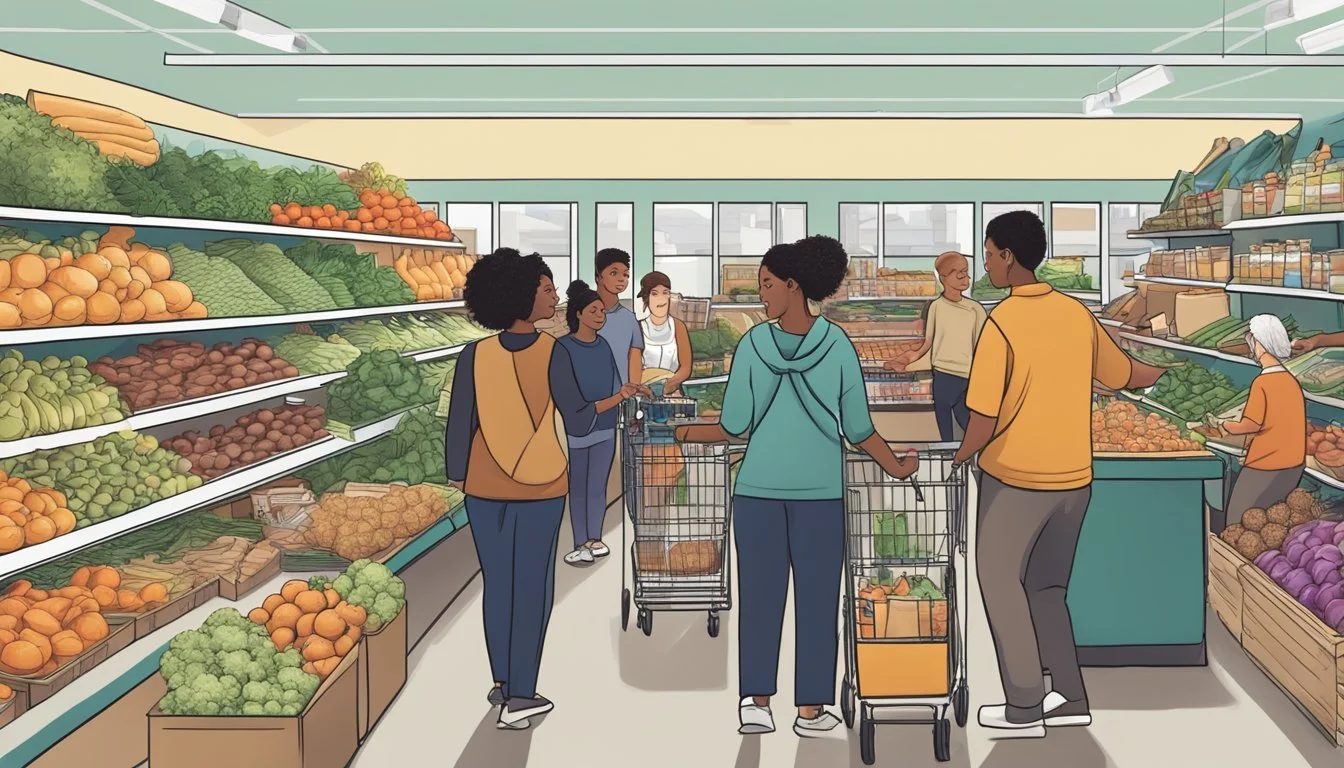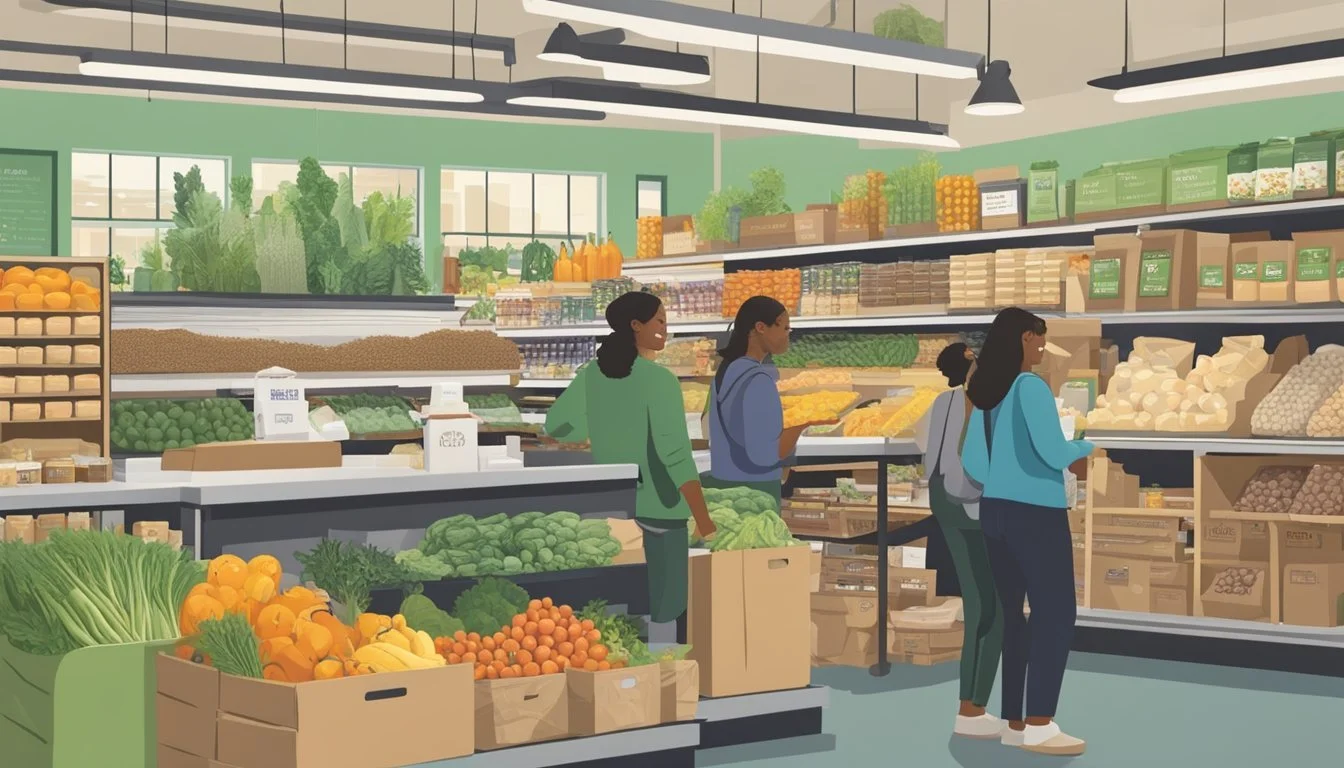Guide to Food Co-Ops in Providence, RI
Your Essential Resource
Food cooperatives in Providence, Rhode Island, offer a unique and community-driven way to shop for groceries. Unlike traditional supermarkets, food co-ops are owned and operated by their members, empowering local consumers to make decisions about the products and services offered. In Providence, this model of cooperative business has rooted itself as not just a place for commerce but also as a community hub where one can find locally sourced, high-quality foods while supporting the local economy and food producers.
As the capital city of Rhode Island, Providence boasts an environment that encourages sustainable living and local purchasing. The city's co-ops are interwoven with this philosophy, providing various options from fresh produce to artisanal goods. Members often benefit from lower prices, a stake in the business, and the assurance that they're contributing to a more sustainable and equitable food system. Non-members are usually welcome to shop at these co-ops, making the benefits of cooperative shopping available to the wider community.
Among the network of food co-ops and startups in New England and New York, those in Providence stand out for their commitment to accessibility and community service. Organizations like Farm Fresh Rhode Island further the mission by increasing the reach of local foods and offering essential marketplaces for farmers. Whether it's through membership participation in decision-making or volunteering, community involvement is central to the operation of Providence's food co-ops, reinforcing the city's vibrant and participatory food culture.
What is a Food Co-Op?
A food co-op serves as a community-centered grocery alternative, promoting local ownership and cooperative principles. These entities focus on offering a curated selection of goods that align with the values and needs of their member-owners.
Defining Food Co-Ops
A food cooperative, or food co-op, is a retail entity that operates on a cooperative model, meaning it is owned and democratically controlled by its members. The members, often comprising local community residents, have the opportunity to buy shares and become part-owners. This ownership structure allows them to influence the co-op's operations, including product sourcing and organizational decisions. Food co-ops typically emphasize a wide array of products that may include local, organic, and natural foods, catering to diverse dietary needs and preferences.
Key Characteristics of Food Co-Ops:
Community-owned and operated
Emphasis on local and organic produce
Members have a say in business operations
History of Food Co-Ops in New England
The history of food co-ops in New England stretches back, deeply rooted in the region's emphasis on community and self-sufficiency. New England food co-ops have traditionally been closely tied to the needs and values of local communities, fostering a strong sense of ownership and connection. Within the region, these co-ops have cemented their status by continuously adapting to the evolving preferences of their member-owners, prioritizing local engagement and sustainably sourced products.
Notable Points:
New England's co-ops adhere to longstanding community values.
Evolution in response to local member-owner needs.
Benefits of Joining a Food Co-Op
Joining a food co-op in Providence, RI, presents unique advantages to members, ranging from directly benefiting local economies to accessing high-quality, organic food. These community-centered establishments foster health and nutrition.
Supporting Local Economy
Food co-ops greatly contribute to keeping financial resources within the local economy. By becoming a member, individuals directly support local farmers and producers, ensuring that a larger portion of their spending stays nearby. This model provides a sustainable and inclusive economic impact, important for regional growth.
Member Benefits: Increased involvement in local business decisions.
Local Farmers: A reliable market for their products, ensuring stability and growth.
Access to Fresh and Organic Food
Members of food co-ops typically enjoy a high standard of produce, including organic options. These co-ops prioritize offering fresh produce, often sourced straight from local farms, which can translate into higher nutritional value and better taste.
Fresh Produce: Prioritized in inventory, supporting local agriculture and reducing transportation time.
Organic Food: Typically available due to co-op members' preference for high-quality, sustainable goods.
Health and Nutritional Advantages
Food co-ops focus on providing wholesome, nutritious food that contributes to a healthier lifestyle for their members. Joining a food co-op can increase access to affordable fruits, vegetables, and other healthy products that might not be as readily available in conventional grocery stores.
Healthy Choices: The co-op's inventory selection is often curated to include healthier food options.
Nutritional Value: Increased access to a variety of nutrients through a diverse range of fresh, quality foods.
How to Join a Food Co-Op
Joining a food co-op involves understanding the different types of memberships and meeting certain requirements. Potential members should be aware that participation in a food co-op connects them with local, sustainable food sources and embeds them within the Providence community.
Membership Types and Requirements
Equity Contribution: Members typically purchase a share of the co-op, which represents their equity contribution and their stake in the ownership.
Annual Fees: Some co-ops may charge an annual fee in addition to the equity investment to maintain membership.
Volunteering: Many co-ops encourage or require members to contribute time by volunteering, helping the co-op to reduce labor costs and foster a sense of community.
Residency: Membership may be limited to local residents to ensure the co-op serves the immediate community.
Membership Application: Individuals interested in joining must complete a membership application, often available at the co-op or on its website.
Orientation: New members may need to attend an orientation session to understand how the co-op operates and their role as members.
Requirement Details Equity Contribution One-time payment for a share of the co-op Annual Fees Possible recurring fees to maintain membership Volunteering Time contribution requirements vary by co-op Residency Must be a Providence local Application Completion of membership application form Orientation Attendance at an informational session about co-op participation and responsibilities may be required
Potential members should inquire directly with their local Providence food co-op for specific membership requirements, costs, and benefits.
Food Co-Ops in Providence, RI
Providence is home to various food co-operatives that aim to provide the community with access to local, sustainable, and high-quality food products. These co-ops are member-owned and mission-driven, deeply valuing the connection between local growers and their urban consumers.
Urban Greens Co-Op Market
Urban Greens Co-Op Market has established itself as a cornerstone of local food commerce in Providence. With a commitment to accessibility and community engagement, Urban Greens prioritizes the sale of local produce, thereby nurturing a close relationship with regional farmers and producers.
Location: Urban Greens is situated in the West End area of Providence, making it a convenient spot for residents seeking fresh, healthy food options.
Reviews: Garnering positive feedback, customers appreciate Urban Greens for their quality selection and contribution to the community.
Services: In addition to in-store shopping, they offer delivery and curbside pickup options, catering to the varied needs of their customers.
Community Role: Urban Greens goes beyond simply being a market; it also acts as a platform for educational programs about food, health, and sustainability, showing its deep-rooted involvement in Providence's local food movement.
These efforts reflect Urban Greens’ dedication to not only providing food but also to fostering a cooperative spirit that champions economic resilience and social well-being within Providence.
Role of Food Co-Ops in the Community
Food co-ops in Providence serve as pivotal centers for community engagement and education. These cooperative enterprises embody the principles of inclusivity and democracy, directly impacting the local community and its food systems.
Community Engagement
In Providence, food co-ops often become hubs where members of the community actively participate in governance and decision-making processes. These co-ops operate on a model that enables the community to own and have a say in the business. Membership is open to all, allowing for a diversified base that reflects the community's composition. Community engagement is expressed through:
General Meetings: Where members vote on crucial co-op matters.
Volunteer Programs: Augmenting the co-op's workforce and fostering ownership.
This involvement ensures that the co-ops are true reflections of the community’s needs and values, supporting local producers and fueling the local economy.
Educational Activities
Educational initiatives within food co-ops serve to inform members and the public about food literacy, nutrition, and sustainable practices. Providence food co-ops frequently offer:
Workshops and Classes: Covering topics such as healthy cooking and sustainable agriculture.
Information Sessions: Where members learn about the origin and benefits of products sold.
By empowering individuals with knowledge, food co-ops contribute to a more informed and health-conscious community. They encourage a well-rounded understanding of the interconnectedness between consumer choices and environmental health.
Challenges Facing Food Co-Ops
Food Co-Ops in Providence, RI, confront various challenges, with financial sustainability at the forefront. These challenges significantly impact their operations, sales, and prices.
Financial Sustainability
The financial strength of Food Co-Ops hinges on consistent sales and competitive pricing strategies. They must balance their ethical procurement practices with the need to offer affordable prices to maintain a loyal customer base. Operating as a socially responsible enterprise often comes with higher costs, and this can lead to pricing challenges. To remain financially viable, Food Co-Ops must navigate these complexities while ensuring they meet the expectations of their community stakeholders and maintain steady revenue streams.
Future of Food Co-Ops
Food Co-ops in Providence, RI, are on a trajectory towards more innovative practices and a broader adoption of the co-op model, which speaks to a future of sustainable growth and a strong emphasis on community-based values.
Innovation and Growth
Food Co-ops in Providence are embracing innovation, both through infrastructure and community engagement. The Urban Greens Co-op Market, for instance, is a testament to this growth, having developed a significant $2.2 million project that expanded into an 8,000-square-foot space. This move not only responds to increasing consumer demand but also represents a commitment to sustainable practices and local job creation, with an anticipated twenty-eight new jobs.
The trend for Food Co-ops is not just to serve as retail outlets but to be pivotal community hubs that support local economies and environmental sustainability. Innovation, therefore, extends beyond the market floor into the domains of food rescue and giving back to the community, as evidenced by efforts in Rhode Island, where thousands of pounds of food have provided numerous meals statewide.
Expanding the Co-Op Model
The expansion of the Food Co-op model in Providence aligns with the broader trend across New England and New York State. The Neighboring Food Co-op Association (NFCA) represents this push, including over 40 Food Co-ops and Start-ups which are collectively owned by more than 173,000 individuals. This growth signifies a move away from traditional business models towards ones that are more inclusive and cooperative.
The encouragement of start-ups is also a feature of this evolving landscape. Organizations in Providence and beyond are dedicated to providing resources, such as webinars and comprehensive guides, which lower the barriers to entry and foster the development of new Food Co-ops. These efforts ensure that the model is not only sustaining but also adaptive and resilient in the face of future challenges.
Supporting Your Local Food Co-Op
Joining and supporting a local food co-op in Providence, RI, allows individuals to play a pivotal role in sustaining and growing a model that is based on community values and mutual benefit. Volunteering, participating in governance, and becoming a member are impactful forms of support.
Volunteer and Community Involvement
Volunteers are the lifeblood of food co-ops, offering their time and skills to enhance day-to-day operations and community outreach. Food co-ops often rely on volunteers for various tasks:
Store Assistance: Helping with stocking shelves, customer service, and maintenance.
Outreach Programs: Participating in community education and local food initiatives.
Volunteers may also have the opportunity to vote on important decisions and partake in the co-op's governance, ensuring that their voice contributes to the strategic direction and operation of the organization.
Securing a membership with a food co-op goes beyond just shopping; it is an investment in a community-centric enterprise. Members can influence the co-op through:
Elections: Electing board members who represent their interests.
Membership Meetings: Attending meetings to discuss and vote on significant issues.
Member-Owner Benefits: Enjoying discounts, special offers, and a share in any profits.
By involving themselves with their local food co-op, individuals help create a robust cooperative economy and bolster food sovereignty in the Providence area.
Access and Inclusion
Providence has taken strides towards ensuring food co-ops are accessible and inclusive to all community members, including those on limited incomes. Through a network of local programs, Providence's food co-ops aim to bridge accessibility gaps and offer support to low-income shoppers.
Bridging the Accessibility Gap
Co-ops in Providence have focused on eliminating the common barriers that prevent access to healthy, local food. The Neighboring Food Co-op Association represents more than 40 food co-ops throughout New England and New York state, including those in Rhode Island. They are locally owned, which means decisions are made with the local community's needs in mind, including the need for accessibility.
The Cooperative Fund of New England (CFNE) has been instrumental in utilizing HFFI financing to enhance healthy food access across New England and eastern New York State. CFNE's initiative integrates financing with development services and technical support, primarily focusing on communities where access to nutritious food is limited.
Programs for Low-Income Shoppers
To assist low-income individuals, Providence co-ops support various programs that aim to stretch food dollars further, such as:
SNAP: Many co-ops in Providence accept the Supplemental Nutrition Assistance Program (SNAP), which helps extend food budgets and increases accessibility to nutritious food options.
Discount Programs: Certain co-ops offer discount programs for SNAP beneficiaries, ensuring that nutritional needs are met without compromising on the quality of food.
Inclusive Programs: The Rhode Island Food Policy Council highlights the importance of equitable access to fresh, local, and culturally relevant food. Programs like vegetable prescription programs, Seafood for All, and Nourish Our Neighbors work towards creating an inclusive food environment.
Food Co-Ops and Environmental Sustainability
Food co-ops take significant strides in environmental sustainability, particularly through initiatives that reduce food miles and unnecessary packaging, thereby supporting eco-friendly practices.
Reducing Food Miles and Packaging
Food co-ops often source products from local farmers and producers, reducing the distance food travels from farm to table, known as food miles. This localized supply chain not only supports the community's economy but also lowers greenhouse gas emissions associated with transportation.
In terms of packaging, food co-ops lead the way in offering bulk bin options, allowing consumers to purchase the exact amount they need and minimize waste. Reusable or biodegradable packaging is often encouraged, aligning with the commitment to sustainability. By focusing on fresh produce without excessive packaging, food co-ops reduce their environmental footprint and offer consumers the opportunity to take part in sustainable shopping practices.
Contact and Participation
Participation in Providence's food co-operatives offers community members the chance to influence local food availability and engage with food systems on a more intimate level. Contacting these co-ops can be the first step towards involvement and contribution.
Engaging with Providence Food Co-Ops
The Neighboring Food Co-op Association (NFCA) represents an important resource for those looking to become actively involved in food co-ops within Providence and the surrounding area. Individuals interested in joining or learning more about the cooperative movement can reach out to the NFCA, which supports over 40 food co-ops.
Local customers of Providence food co-ops are not just buyers; they are active participants and contributors to the health of these community-centric enterprises. They have the opportunity to become member-owners, which gives them a voice in operations, a chance to attend events, participate in workshops, and even serve on governance committees.
Community engagement is at the heart of food co-op philosophy. The NFCA encourages community members to connect by offering support to existing co-ops and providing resources for start-ups. These co-ops contribute to the local economy while focusing on sustainable and ethical food practices.
For those wishing to contact the NFCA or local food co-ops in Providence directly, they often list their contact information on their official websites, alongside details for upcoming events and volunteer opportunities. Contact methods typically include email, phone numbers, and physical addresses for in-person visits.
Contact Us: For direct communication, the NFCA and individual co-ops provide contact details on their websites, enabling prospective members and interested parties to reach out for information.
Customers: As a customer with an interest in deeper involvement, food co-ops offer the opportunity to become more than just a shopper by inviting them to join as a member-owner.
Community: Active community participation is encouraged by food co-ops, from events and workshops to volunteering and serving in leadership roles within the cooperative.



